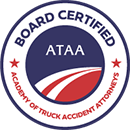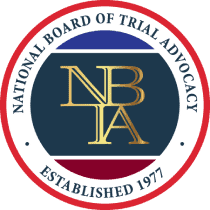Help for Truck Accident Survivors and Families
Trucking Injury Law Group is a multi-state law group that was founded with one uniting goal in mind—providing unparalleled legal representation to victims of commercial motor vehicle (CMV) crashes. It is our goal with every case we take to be a constant, reliable presence upon which our clients can depend.
As part of our commitment to accident victims, we have compiled the following information regarding help for truck accident survivors and families. We hope that this information serves as a useful resource as you navigate life after a serious collision.
When To Ask for Help After a Tractor-Trailer Crash
If you’ve been injured in a tractor-trailer crash or are helping a loved one recover from an accident, the best time to ask for help was immediately after the collision. The second-best time is now.
There is no shame in asking for help. Many tasks in life require the guidance and expertise of others, and seeking out support from other people is often one of the bravest and most important steps any truck accident survivor can take.
Where Truck Accident Survivors Can Find Support
What many truck accident survivors don’t realize is just how many resources are at their disposal. And there is no doubt about it—this is what the trucking company and their insurer want. If you feel alone, isolated, and without the support you need, you’ll be more likely to accept a lowball settlement offer that does not fully address your physical injuries, mental anguish, and financial losses.
Sources of help, guidance, and assistance after a truck accident can be found with:
Doctors
Your physical health and well-being are a priority after any accident, and doctors are the most appropriate people with whom you can find support. If you’ve been injured in a truck crash, you will likely be treated and monitored by a variety of health care professionals, including:
- Primary care physicians (family doctors)
- Emergency room doctors
- Surgeons
- Anesthesiologists
- Specialists (including orthopedists and neurologists)
- Nurse practitioners
- Radiologists
- Registered nurses
- And more
Depending on the extent and severity of your injuries, you may also find the services of an in-home nurse or an in-home health care provider to be necessary.
Mental Health Professionals
Not all scars are visible. A serious truck accident can cause victims to develop serious, life-altering mental health disorders, including:
- Anxiety
- Depression
- Post-traumatic stress disorder (PTSD)
- Insomnia
- Vehicle-related phobias
There is never a reason to suffer alone after a car accident. If you’ve been struggling with your mental and emotional well-being in the aftermath of a violent truck crash, consider seeing a:
- Psychiatrist, who is able to diagnose conditions and prescribe medications, or a
- Psychologist, who can provide a wide range of therapeutic services, including talk therapy.
Support Groups
Being involved in a truck accident can feel like an isolating event. You’re injured, possibly out of work, and dealing with new life stressors that none of your friends or family will ever truly understand.
You are not the only person to know what it’s like to survive a collision with a CMV. Support groups like those put on by the Institute for Safer Trucking (IST) provide a safe, supportive, and understanding environment in which accident survivors can connect with one another. Depending on your location, physical condition, and emotional well-being, you may benefit from attending either virtual or in-person support groups.
Help for Families of Truck Accident Victims and Survivors
We understand that families want to do everything they can to help their loved ones who have been injured in truck accidents. However, families can only do so much when they are not being supported themselves.
For this reason, Trucking Injury Law Group also recommends that anyone who is helping or supporting a loved one who has been in a semi-crash also ensure that they are looking for and accepting help when they need it. For caregivers, this may mean:
- Speaking with a therapist or other mental health care professional
- Attending local support groups for caregivers
- Scheduling annual physicals
- Eating a healthy diet and getting regular exercise
- Maintaining a close circle of friends and family members
- Making use of local respite services when needed
Providing support, even temporarily, to a loved one who has been through a devastating accident is an extraordinary gift. However, don’t forget to also care for yourself during this period of time. Ask for and accept help when you need it.






